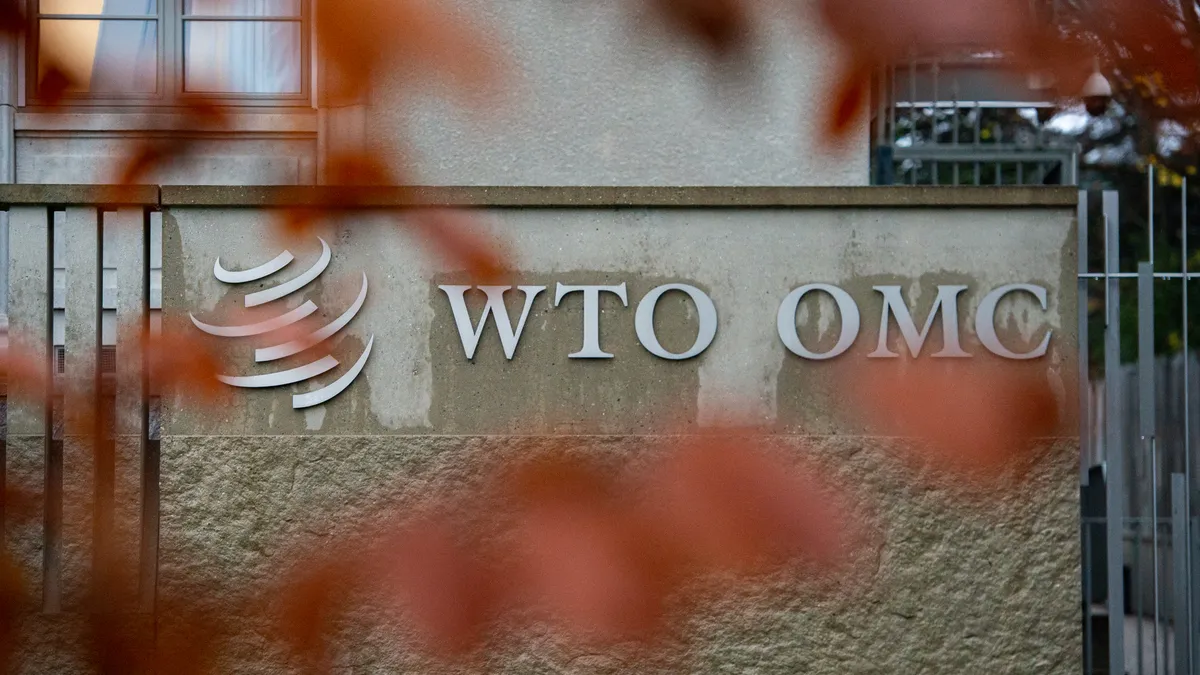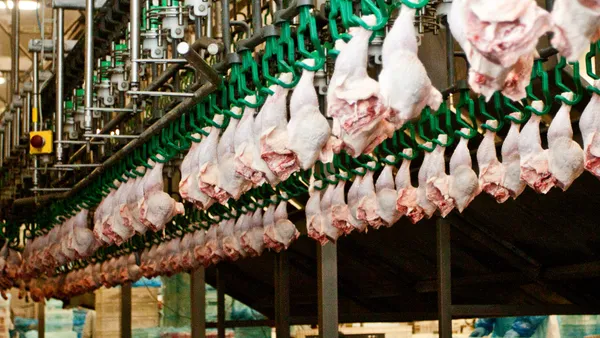Dive Brief:
- China said Tuesday it has appealed a World Trade Organization decision that sided against the country’s retaliatory tariffs on $2.4 billion worth of pork, fruits and other U.S. products.
- The WTO's ruling from mid-August contained legal errors, China said in a statement, and the country is appealing the ruling to safeguard its national interests and security.
- Because the WTO’s appellate court is currently unable to render judgment, the appeal effectively cancels out the trade body’s initial decision and allows China’s tariffs to remain in place.
Dive Insight:
A non-functional appellate court has allowed countries to impose tariffs with impunity, leaving agriculture exporters often bearing the brunt of the fallout.
Since 2019, the U.S. has blocked appointments to the dispute settlement panel in part over concerns that the appellate court often exceeds its authority in decision making. With no end to the stalemate in sight, countries have been allowed to take trade action with little oversight.
“Right now, even a blatantly illegal action like a ban on agricultural exports cannot effectively be challenged using the WTO process, because of this ability of the losing party to appeal into the void,” said Timothy Brightbill, co-chair of the international trade practice for D.C.-based law firm Wiley Rein LLP.
The WTO last month rejected China’s retaliatory tariffs imposed in response to U.S. steel and aluminum duties under the Trump administration. China’s tariffs included an additional 15% tax on goods including nuts and produce, in addition to a 25% duty on pork.
Tariffs caused agricultural exporters to miss out on tens of billions of dollars in export opportunities from China from 2018 to 2019, according to the U.S. Department of Agriculture. As the Biden administration continues to take a hard stance on China, major exporting industries such as agriculture could become caught in the middle of rising trade tensions.
“I think even ag interests agree that we need to be tough on China, we need to strongly enforce our trade laws,” Brightbill said. “It’s just unfortunate that China can sometimes retaliate by targeting high profile U.S. industries that export there, and that oftentimes involves agriculture.”











